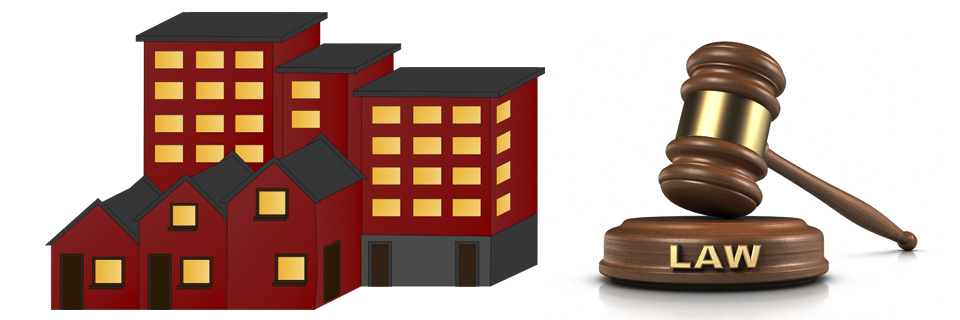Landlord – Tenant Laws in California
California Laws for Security Deposit:
- Security Deposit Maximum Allowed:
- Two months’ rent for unfurnished units;
- Three months’ rent if furnished units.
- (Civ. Code §§ 1950.5 and 1940.5g)
- Interest on Security Deposit : No state-wide statute, but some local cities with rent control ordinances require Landlords to pay interest, including Los Angeles. (reference)
- Separate Security Deposit Bank Account: Landlords can keep the deposit in any account.
- Non-Refundable Deposits, like: Pet and Additional Fees : Strictly not Allowed (Civ. Code §§ 1950.5m)
- Deadline for Returning Security Deposit: 21 days (Civ. Code §§ 1950.5g)
- Tenant Security Deposit can be Withheld: (handbook)
- For unpaid rent;
- For cleaning the rental unit when the tenant moves out, but only to make the unit as clean as it was when the tenant first moved in;
- For repair of damages, other than normal wear and tear, caused by the tenant or the tenant’s guests; and
- If the lease or rental agreement allows it, for the cost of restoring or replacing furniture, furnishings, or other items of personal property (including keys), other than because of normal wear and tear.
- Require Written List of Damages and Charges: Yes, the landlord must send the itemized statement, copies of invoices or receipts, and any good faith estimate to you at the address that you provide. If you do not provide an address, the landlord must send these documents to the address of the rental unit that you moved from. No report is required if repairs and cleaning cost less than $126. (Civ. Code §§ 1950.5g 4A)
- Record Keeping of Deposit Withholdings: Not Required
- Failure of Landlord to Comply: A bad faith claim or retention by a landlord may subject the landlord to statutory damages of up to twice the amount of the security, in addition to actual damages. (Civ. Code §§ 1950.5(l))
California Law for Lease, Rent & Fees:
- Rent is Due: Unless there is a contract to the contrary, and the lease is for less than one year, rent is due at the end of the month. Most leases state that rent is due at the beginning of the month. (Civ. Code §§ 1947) and (Civ. Code §§ 1962)
- Payment Methods: Landlord must allow at least one form of payment that is neither cash nor electronic funds transfer, unless tenant has had an insuffienct funds payment, or stopped payment on a money order. Then the landlord can require payments to be paid in cash. (Civ. Code §§ 1947.3(1-2))
- Notice of Rent Increase : 30 days if rent increase is less than 10 percent of the lowest amount of rent charged during the last 12 months. 60 days if rent increase is more than 10 percent of the lowest amount of rent charged during the last 12 months. (Civ. Code §§ 827(b)(2-3))
- Late Fees: Are allowed, but they must be “reasonable” and obey rent control laws, and are only enforceable if specified in the lease. (handbook)
- Application Fees: The maximum fee is adjusted each year based on changes in the Consumer Price Index since January 1, 1998. In 2012, the maximum allowable fee is $44.51 (Civ. Code §§ 1950.6(b)).
- Prepaid Rent: Landlord is allowed to collect one month’s pre-paid rent (first month’s rent) plus two or three months’ security deposit. (handbook)
- Returned Check Fees: Equal to the actual bank fee. Or landlord can charge a flat “service” fee which is $25 for the first occurrence, and $35 for each occurrence thereafter (handbook).
- Tenant Allowed to Withhold Rent for Failure to Provide Essential Services (Water, Heat, etc.): Yes, because the property is under the “implied warranty of habitability.” (handbook)
- Tenant Allowed to Deduct Rent for Repairs: Yes, If Landlord does not reply to essential repairs within a reasonable time. Up to the cost of one month’s rent, and up to twice in a 12-month period. (Civ. Code §§ 1942)
- Landlord Allowed to Recover Court and Attorney’s Fees: Yes (Civ. Code §§ 789.3d)
- Landlord Must Make a Reasonable Attempt to Mitigate Damages to Lessee, including an Attempt to Re-rent: Yes (Civ. Code §§ 1951.2)
California Law for Notices and Entry:
- Notice to Terminate Any Periodic Lease of a Year or More – If ALL tenants have lived there longer than a year, the landlord is required to give 60 days notice. (handbook)
- Notice to Terminate a Periodic Lease – Month-to-Month: Landlord is required to give 30 days notice. Tenant is required to give 30 days notice. (Civ. Code §§ 1946)
- Notice to Terminate a Periodic Lease – Week-to-week: Landlord is required to give 30 days notice. Tenant is required to give seven days notice. (handbook)
- Notice to Terminate Tenancy – Fixed End Date in Lease: No notice is needed as the lease simply expires. I recommend giving 60 days notice anyway.
- Notice to Terminate Lease due to Sale of Property: 30 days notice if ALL of the following are true: (Civ. Code §§ 1946.1) (handbook)
-
- The landlord has contracted to sell the rental unit to another person who intends to occupy it for at least a year after the tenancy ends.
- The landlord must have opened escrow with a licensed escrow agent or real estate broker, and
- The landlord must have given 30-day notice no later than 120 days after opening escrow, and
- The landlord must not previously have given you a 30-day or 60-day notice, and
- The rental unit must be one that can be sold separately from any other dwelling unit. (For example, a house or a condominium can be sold separately from another dwelling unit.)
- Notice of date/time of Move-Out Inspection: 48 hours (Civ. Code §§ 1950.5(f))
- Eviction Notice for Nonpayment: Three days (Civ. Procedure Code §§ 1161(2))
- Eviction Notice for Lease Violation: Three days to remedy lease violation or landlord can file eviction (Civ. Procedure Code §§ 1161(3)). Landlord can also terminate the lease for subletting without permission or illegal activity on the premise. (Civ. Procedure Code §§ 1161(4))
- Emergency Entry Allowed without Notice: Yes (Civ. Code §§ 1954b)
- Required Notice before Entry: 24 hours (Civ. Code §§ 1954a)
- Entry Allowed with Notice for Maintenance and Repairs (non-emergency): 24 hours (Civ. Code §§ 1954a)
- Entry Allowed During Tenant’s Extended Absence: No (Civ. Code §§ 1954)
- Notice to Tenants for Pesticide Use: No Statute
- No Lockouts Allowed! (Civ. Code §§ 789.3b(1))
- No Utility Shut-offs Allowed! (Civ. Code §§ 789.3a)
California Law for Disclosures and Misc. Notes:
- Landlord Must Accept First Qualified Applicant – The 2012 Fair Housing Handbook of California says on page 24, “The landlord should take the time to check out the information and make a selection based on the first qualified applicant(s),” although there is no statute to support this. It’s recommended but not law.
- Copy of Lease: Provide a copy of the rental agreement or lease to the tenant within 15 days of its execution by the tenant. (Civ. Code §§ 1962(4))
- Utilities: Landlord must disclose if utilities that service tenant’s unit also service other areas (such as common foyers), and disclose the manner in which costs will be fairly divided up. (Civ. Code §§ 1940.9) Landlord must also provide a formula for dividing up utilities when utilities are split among multiple tenants.
- San Francisco Utilities: Landlords must provide heat that can maintain a room temperature of 68 degrees. This level of heat must be provided for at least 13 hours, specifically from 5-11 AM and 3-10 PM.
- Move-In Condition: Landlord is not required to provide a Move-In Condition Checklist for the Tenants to complete. However, it is recommended and extremely helpful should you ever go to court over physical damages to the dwelling.
- Mold: Landlord must disclose, prior to lease signing, knowledge of any mold in the dwelling that exceeds safety limits or poses a health concern. Landlord must distribute a State Department of Health Services consumer handbook. (Health & Safety Code §§ 26147)
- Demolishment: If a landlord or agent has applied for a permit to demolish a rental unit, the landlord must provide written notice to prospective tenants before accepting any money. (Civ. Code §§ 1940.6)
- Ordinances: Landlord must disclose the locations of former ordinances in the neighborhood. (Civ. Code §§ 1940.7)
- Sexual Offenders: Landlords are required to include the following language in the lease:
“Notice: Pursuant to Section 290.46 of the Penal Code, information about specified registered sex offenders is made available to the public via an Internet Web site maintained by the Department of Justice at www.meganslaw.ca.gov. Depending on an offender’s criminal history, this information will include either the address at which the offender resides or the community of residence and zip code in which he or she resides.” (Civ. Code §§ 2079.10a) - Pests Disclosures: At lease signing, Landlord must disclose any pests control contracts or disclosures received by pest control companies. If the premise is being treated for pests, landlord must disclose the pesticides used and their active ingredients, and any warnings associated with them. (Civ. Code §§ 1940.8, and Business and Professional Code §§ 8538)
- Smoking: If the landlord limits or prohibits smoking, landlord must include a clause that specifies the areas on or in the premise where smoking is prohibited. (Civ. Code §§ 1947.5)
- Proof of Domestic Violence Status: Landlord is entitled to proof/documentation of domestic violence status of the tenant if the tenant claims they are a victim. (Civ. Code §§ 1941.5, 1941.6, 1941.7)
- Locks: Landlords must change the locks if requested by a domestic violence victim and proof of court order is given. (Civ. Code §§ 1941.5 and 1941.6)
- Special Treatment: A victim may terminate a lease with 30 days notice and proof of victim status. (Civ. Code §§ 1941.7) A landlord cannot end or refuse to renew a tenancy based upon the fact that tenant or a member of tenant’s household is a victim of a documented act of domestic violence, sexual assault, or stalking. (Civ. Procedure Code §§ 1161.3)
- Abandoned Property: The rules are lengthy and specific, please read Civ. Code §§ 1965, 1980 to 1991.
- Retaliation: Landlord must not terminate a lease, increase rent, decrease services, cause a lessee to quit involuntarily, or bring an action to recover possession to a tenant who has filed an official complaint to a Government Authority, been involved in a tenant’s organization, or exercised a legal right. Courts will assume “retaliation” by landlord if negative action is taken on the tenant within 180 days (six months) after any of the prior tenant actions. (Civ. Code §§ 1942.5) It will also be considered retaliation if the landlord acts negatively within six months after any of the following:
- Using the repair and deduct remedy, or telling the landlord that the tenant will use the repair and deduct remedy.
- Complaining about the condition of the rental unit to the landlord, or to an appropriate public agency after giving the landlord notice.
- Filing a lawsuit or beginning arbitration based on the condition of the rental unit.
- Causing an appropriate public agency to inspect the rental unit or to issue a citation to the landlord.
This blog and its contents are made available for general educational purposes only by providing general information and commentary about various regulations and case law. This blog and its contents do not provide any legal advice. This blog and its contents and your use thereof do not create an attorney-client relationship. By using this blog you understand that information cannot be protected from disclosure. Please do not include in your use of this blog any confidential, secret or otherwise sensitive information concerning any potential or actual legal matter. Meyers Nave does not have a duty or a legal obligation to keep confidential any information that you provide in this blog. This blog and its contents are not substitutes for legal advice from an attorney licensed to practice in your jurisdiction. Article is courtesy of landlordology.com and is intended for general purpose only.



